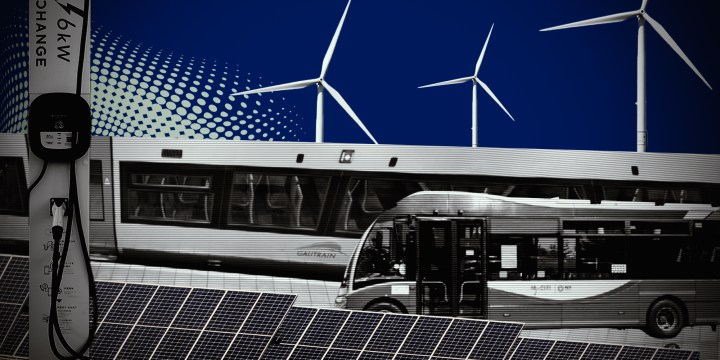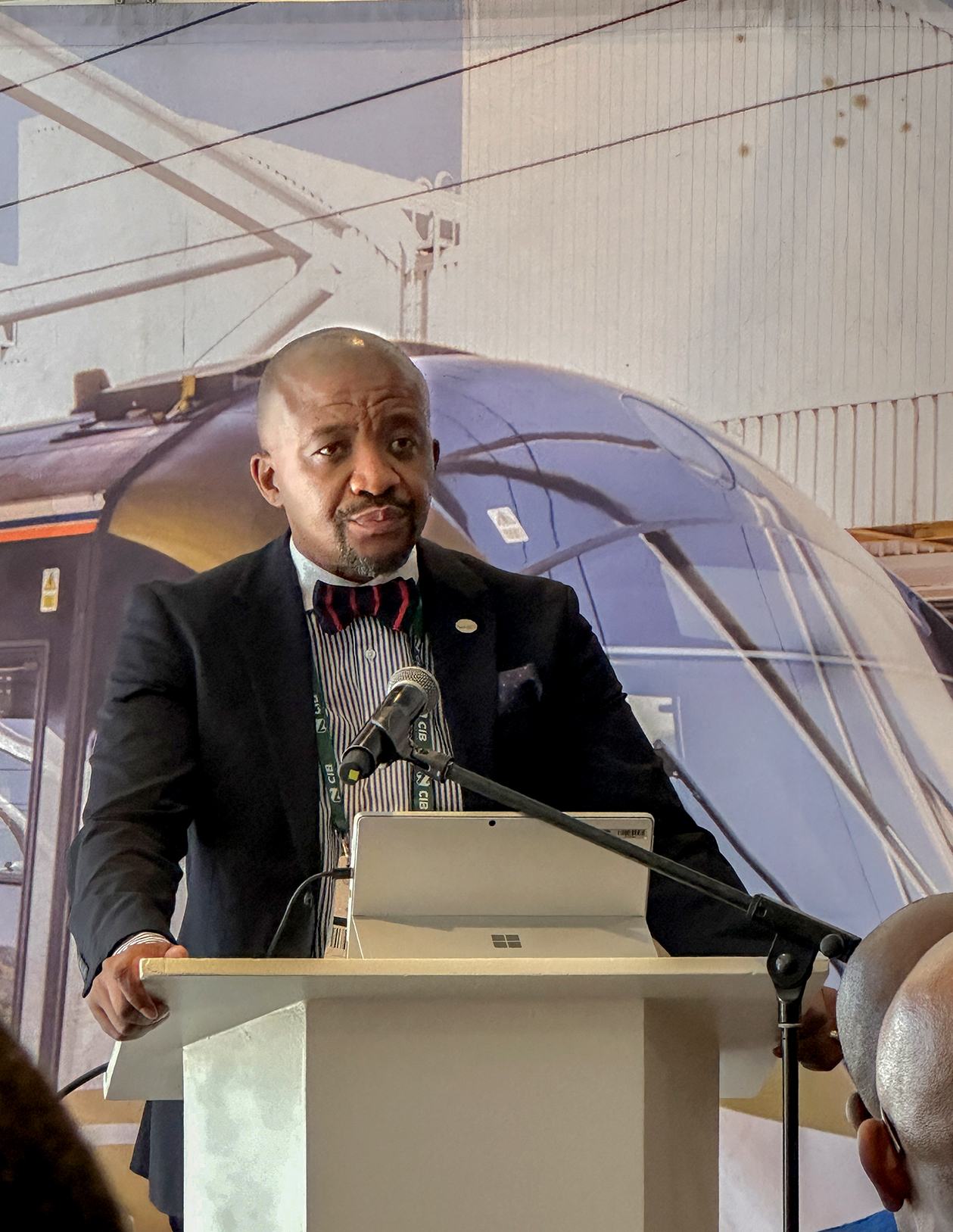AFRICA'S GREEN ECONOMY SUMMIT
Buses, taxis, batteries & gas — Cape Town mayor, Gautrain CEO share plans to decarbonise transport

At separate meetings at the Africa’s Green Economy Summit in Cape Town, the chief executive of the Gautrain Management Agency and mayor of Cape Town shared details of what they are planning to do to reduce transport’s carbon footprint in South Africa’s biggest cities.
A report by the Boston Consulting Group published in March 2023 noted: “In South Africa, transport is the third-largest emitting sector, with almost 55 Mt CO2 emissions contributing more than 10% to the country’s national gross emissions.”
On the sidelines of Thursday’s summit, Gautrain Management Agency (GMA) chief executive Tshepo Kgobe shared some of the agency’s plans to use its abundant property holdings to generate renewable energy and integrate new-energy vehicles into Gautrain’s offering.
He also gave details on how the agency plans to use battery storage in some of its vehicles, as well as hydrogen.
The agency’s 9m and 12m buses, he said, have a “lifetime evolution” built in, which means the internal combustion engine – which is bolted into a cradle – can be removed and replaced with batteries and an electric motor.
The GMA has a fleet of 125 heavy-haul buses and 22 midibuses.
With the proper battery and weight distribution set-up, the buses can be reconfigured to operate on batteries in two hours, said Kgobe, and the agency is looking at how to reconfigure the engine-to-weight ratio to enable this change on more of its buses.

Gautrain Management Agency CEO Tshepo Kgobe describes some of the agency’s plans at the Africa’s Green Economy Summit in Cape Town. (Photo: Ethan van Diemen)
Kgobe has said that he intends on “greening” their operations and “taking most of the stations off the grid through solar power solutions and ensuring that most of our buses are powered by hydrogen”.
He has also said that as they refurbish the trains beyond 2026, the GMA will “explore the possibility of developing them into hydrogen trains”.
Speaking on Thursday, Kgobe explained that Gautrain – like other rail operators in South Africa – has abundant property holdings that can be used to further green its operations.
“We have the ability to produce our own power,” he said, adding: “We have enough real estate on our service to be able to produce our own power all around and therefore that allows us the courage to be able to venture into green economies because we have the ability to do so.”
Earlier at the summit, Cape Town mayor Geordin Hill-Lewis shared some of the Mother City’s plans to decarbonise and expand its public transport network.
“The City is rolling out the biggest infrastructure project in the whole Western Cape – an R8.5-billion expansion of our MyCiti bus system to the metro southeast, which is Khayelitsha and Mitchells Plain.
“What’s really cool about it is that it will be completely electric. All of the buses on that route will be e-buses and that’s an important shift for the city,” he said.
The Just Energy Transition Implementation Plan 2023-2027 adds more detail on some of the projects already taking place in Cape Town.
It singles out the Golden Arrow Bus Service (GABS) electric bus projects and the Flex EV electric taxi project, both of which are based in Cape Town. GABS has a fleet of 1,100 buses and replacing these with electric buses will reduce carbon emissions by 67 kilotonnes of CO2 per year, it adds.
Flex EV is a start-up company focusing on the electrification of the taxi sector. “The company plans to roll out two pilot projects in Stellenbosch and Century City in Cape Town and launch approximately 80 e-MBTs and two charging facilities over the next two years.”
The GMA and the City of Cape Town announcements come in the same week that the government officially announced plans to support new-energy vehicles in the country.
Daily Maverick reported that Finance Minister Enoch Godongwana, in his Budget speech on Wednesday, announced that from 1 March 2026 the government will introduce an allowance for new investments to encourage the production of electric vehicles in South Africa.

Cape Town mayor Geordin Hill-Lewis delivers his address at the Africa’s Green Economy Summit in Cape Town. (Photo: Ethan van Diemen)
This would allow producers to claim 150% of qualifying investment spending on electric and hydrogen-powered vehicles in the first year. This would be implemented in addition to the existing support under the Automotive Production Development Programme, an incentive scheme aimed at promoting production volumes.
The Department of Trade, Industry and Competition has also reprioritised R964-million over the next three years to support the transition to electric vehicles, in line with the Electric Vehicles White Paper, as well as R600-million for the global business incentive for offshore business processing. A further R16.4-billion is earmarked for business incentives through the department over the medium term.
Read more in Daily Maverick: Motoring sector finally gets 150% rebate on investment in new electric vehicles, but only in 2026
Both announcements are in line with South Africa’s broader attempts to decarbonise its economy.
Ahead of COP27 in Egypt at the end of 2022, South Africa shared its Just Energy Transition Investment Plan, in which new-energy vehicles are one of the three priority sectors.
Read more in Daily Maverick: Funding a greener future – Ramaphosa outlines South Africa’s R1.5 trillion three-step energy transition plan
Daily Maverick reported at the time that investment in this sector would be focused on decarbonising the industry and supporting a supply chain transition to sustainable manufacturing. DM



















 Become an Insider
Become an Insider
The feature of being able to switch between electric power and petrol power in the bus fleet is great. You can quickly get back to reliable gas powered buses when the batteries fail.
If you are referring to gas as hydrogen then agreed but if you are referring to gas a natural gas then no as the life cycle carbon footprint of natural gas is worse than that of coal once you account for the fugitive emissions.